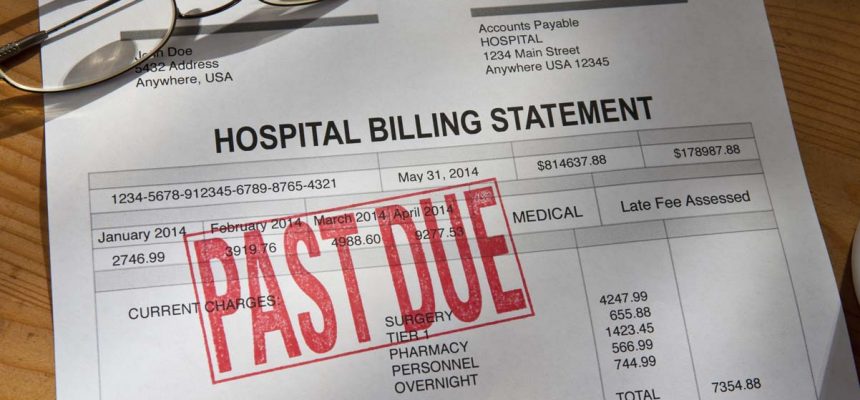A Retiree Fights A Nightmare Lab Fee
By Consumers For Quality Care, on January 22, 2021

Kaiser Health News (KHN) reports on lab work that generated a big surprise medical bill for a retired New Mexico couple.
After realizing their dream of buying an RV and hitting the road full time, Lorraine and Michael Rogge decided to wait out the coronavirus pandemic in New Mexico. When Lorraine started to feel pelvic pain and cramping, she was able to find a gynecologist through her insurance, Anthem Blue Cross.
Lorraine never received a call with the results for lab testing, and the pain eventually went away. Then she received a $12,386.93 bill.
Even after Anthem Blue Cross negotiated the bill down, Lorraine still owed $3,010.47 on top of the $93.85 she had already paid for the original doctor visit.
“I thought there was some mistake,” she says. “They ran numerous tests that not only did I not authorize, they didn’t apply to me.”
Lorraine called her insurance, and they made her aware of a wide range of sexually transmitted disease tests that were run without her knowledge. Some tests were run multiple times. Lorraine said she was never even questioned about her sexual history.
“I was incensed that they ran these tests, when they just said they were going to run a yeast infection test,” said Rogge. “They ran all these tests that one would run on a very young person who had a lot of boyfriends, not a 60-year-old grandmother that’s been married for 26 years.”
After discovering that this medical center was infamous for aggressive billing practices and for suing patients for unpaid hospital bills, Lorraine reluctantly set up a payment plan. However, the medical center waived the bill after KHN inquired about Lorraine’s experience.
Not everyone is as lucky though. Experts encourage patients to ask these questions before getting lab testing to avoid being put in a similar predicament: What is it for and how much will it cost? What exactly am I being tested for?
Don’t be afraid to fight the bills and to escalate the matter if they are excessively high. You can even file a complaint with your state’s Office of The Superintendent of Insurance for an independent review.




